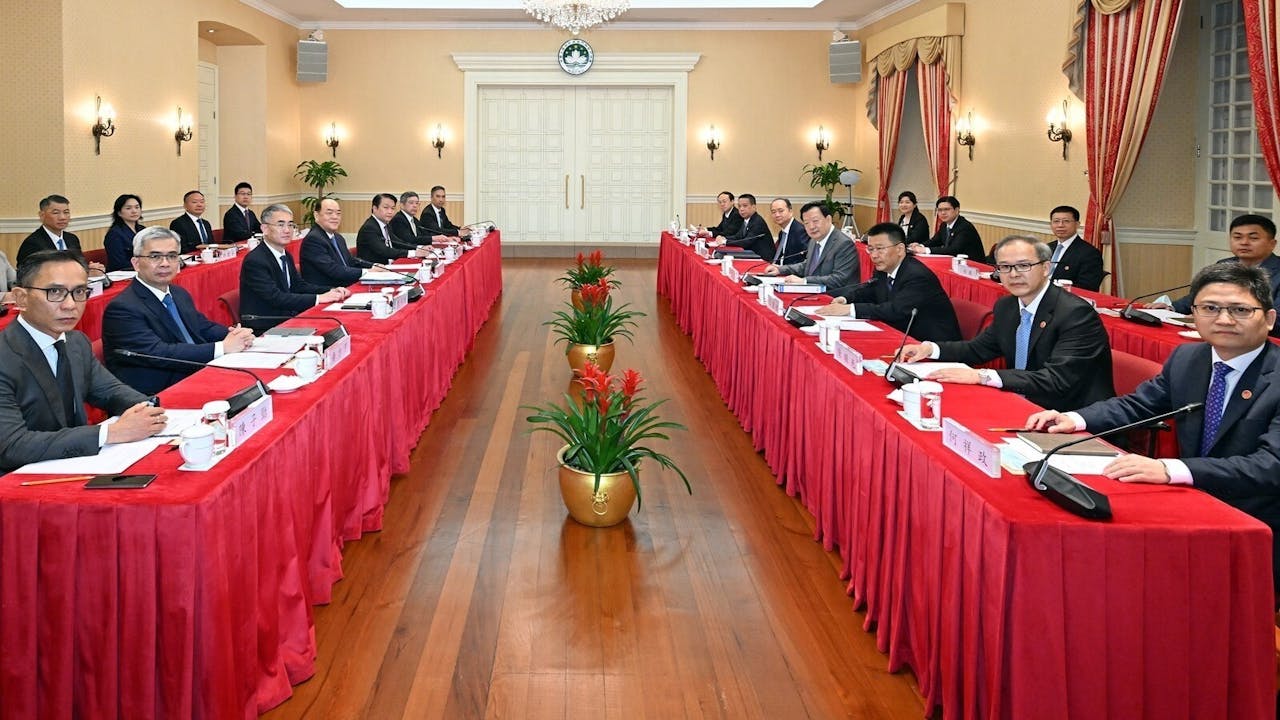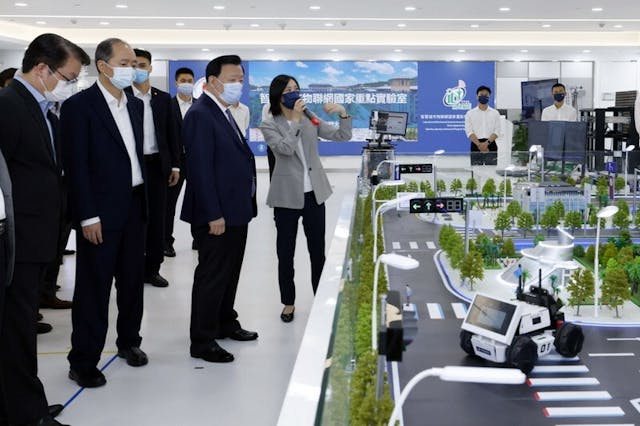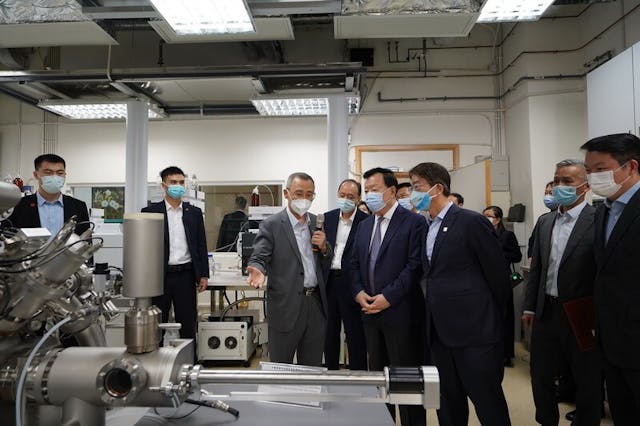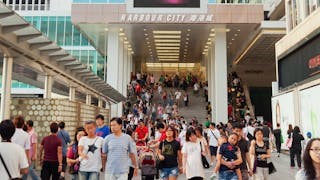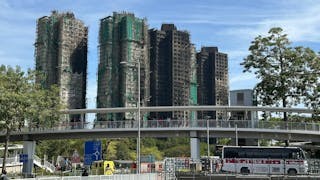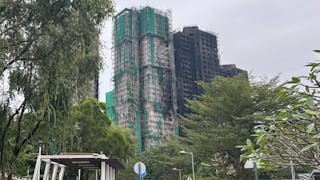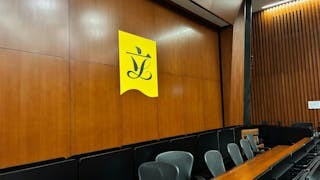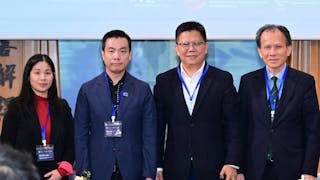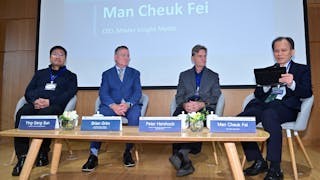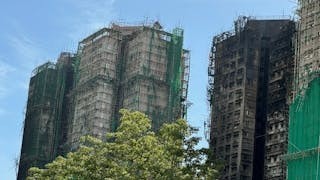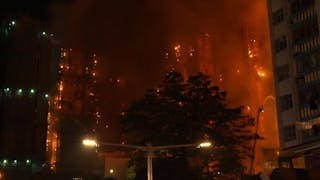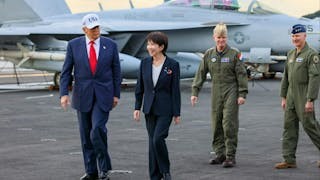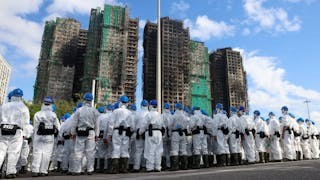國務院港澳辦主任夏寶龍於5月23日至26日對澳門進行為期4天的訪問,不僅對澳門,而且對香港和大灣區都具有重要意義。
夏寶龍首日訪澳,先從澳門進入橫琴粵澳深度合作區進行調研。在橫琴粵澳深度合作區,他認真聽取了發展規劃,參觀了澳門青年「創業谷」和澳門新街坊在建項目,考察了中醫藥科技產業園。他參觀了和橫琴大橋「二線」通道海關監管作業場所。 此外,夏寶龍還會見了合作區管委會成員,與他們進行了交流。
強調「愛國者治澳」
同日下午,夏寶龍前往澳門,轉達國家主席習近平希望澳門政府能夠團結社會各界,以維護國家安全為原則,堅定不移貫徹「一國兩制」的信息。此外,夏寶龍說,澳門應加強「愛國者治澳」建設,促進經濟適度多元發展,澳門政府應提升管治水平和治理能力。澳門可以也應該為強國建設和中華民族復興作出更多貢獻。
夏寶龍重申,澳門要全面準確、堅定不移貫徹「一國兩制」。在維護國家安全方面,他強調國民教育、國家安全教育的重要性,以及澳門實施新修訂的《維護國家安全法》的必要性。
對於「愛國者治澳」,夏寶龍說,澳門的管治權必須牢牢掌握在愛國愛澳者手中,要實現最廣泛團結,形成更廣泛的國內外支持「一國兩制」的統一戰線。
關於經濟多元化,夏寶龍說,澳門必須培育新興產業,改善營商環境,培養和吸引人才,發展基礎研究,鞏固科技創新,以提高澳門的競爭力。
經濟須適度多元化
關於開發橫琴的問題,夏寶龍說,澳門與廣東要加強溝通、對話和協商,雙方要把橫琴打造成為澳門經濟適度多元化的新平台。
重視大學大專作用
夏寶龍訪問澳門的第二天,會見了澳門政府的主要官員。他強調了中央政府對澳門政府工作的肯定,聽取了澳門政府的匯報,隨後又與立法會全體議員進行了互動。下午,夏寶龍一行考察了澳門旅遊學院,參觀了培養旅遊業人才的實訓教室。
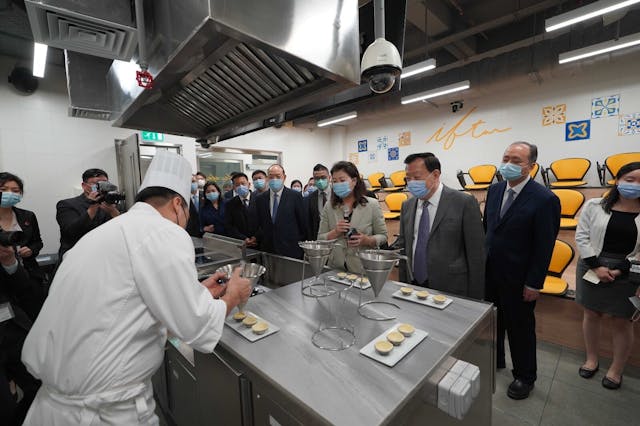
夏寶龍還會見了澳門紀律部隊代表,並聽取了保安司司長黃少澤介紹澳門治安情況。夏寶龍鼓勵紀律部隊把維護國家安全和人民安居樂業放在首位,並承諾中央會全力支持及保障澳門安全。
夏寶龍在澳門行政長官賀一誠的陪同下,會見了終審法院院長岑浩輝、檢察長葉迅生等司法部門負責人,聽取他們的工作並與他們交流。夏寶龍表達了中央對澳門司法工作的充分肯定。
夏寶龍第二天訪問的一大亮點,是關於習近平主席2023年5月23日致澳門科技大學師生的回信,這封信勉勵參與研製「澳門科學一號」衛星的澳科大師生,勉勵他們要堅持愛國愛澳的優良傳統,積極融入國家發展大局,參與大灣區建設。
就習近平的回信,澳門行政長官賀一誠表達了澳門民眾對國家主席支持之情的感謝,指出建設世界科技強國,推進中國式現代化,為澳門的科技、創新、教育和人才發展提供了更為廣闊的發展空間。
探望長者盼老有所為
夏寶龍訪問澳門的第三天,他一早就到一間酒樓飲早茶,然後到長者日間服務機構與長者和義工互動,一起唱歌,並透露習近平主席對澳門長者來信的回應。習近平說,期望長者照顧好身體,並寄語長者老有所為,繼續發光發熱,將愛國愛澳精神傳遞下去。習近平又期望政府與民間機構繼續合作,為長者做好各方面工作。
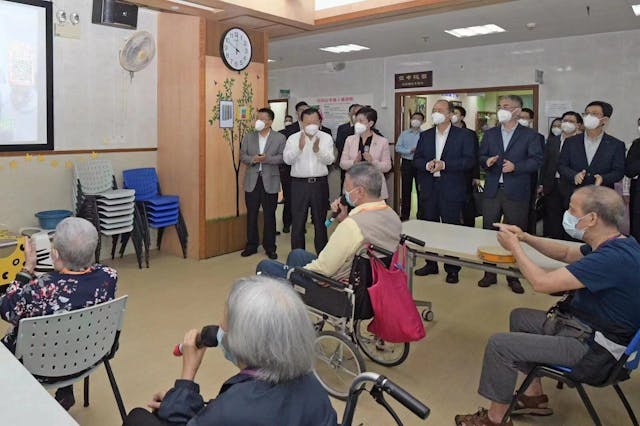
夏寶龍參觀了澳門大賽車博物館、中國與葡語國家經貿合作服務平台的產品展示中心等。 他與工商業界人士會面,強調澳門要走適度多元發展的方向,以及做好橫琴建設。夏寶龍又聆聽了介紹澳門非物質文化遺產項目和澳門文化發展。與夏寶龍接觸的商界人士包括飲食業、建築業、貨幣金融服務業、葡語企業和商會等。夏寶龍表達了中央政府感謝澳門工商界過去三年對澳門政府的支持,並鼓勵業界成員建設橫琴合作區,為澳門經濟多元化作出更多努力。
夏寶龍還參觀了澳門的公共房屋示範單位,在長者公寓逗留了一個小時。他對單位的空間表示讚賞,並聽取了官方對澳門公共房屋政策和發展的解釋。可見,港澳辦主任非常重視澳門的民生和房屋發展。
夏寶龍訪問澳門的最後一天,重點是考察澳門科技大學和澳門大學,並考察了四個國家級重點實驗室。他視察了澳科大中藥質量研究實驗室的運作情況,並聽取了參與國家衛星計劃的18位澳科大師生的感受。夏寶龍還參觀了澳門大學智慧城市物聯網實驗室項目。
重視非博彩項目發展
夏寶龍亦視察了兩家綜合度假休閒企業考察多個非博彩項目。他表達了對澳門如何能夠在非博彩領域發展旅遊的濃厚興趣──這表明港澳辦主任最重視非博彩元素的發展,以便澳門能夠實現經濟多元化,避免對博彩業的過度依賴。
夏寶龍的訪問對澳門、香港和大灣區都具有重要意義。
首先,他明確指出,澳門有必要經濟多元化,是沒有任何選擇的,這與習近平主席的期望相呼應。對中央政府的領導人來說,澳門對博彩業的過度依賴在意識形態上是不能接受的,儘管他們沒有明確表示。去年澳門政府批出博彩經營權牌照前,多家澳門賭場經營企業因違反內地和澳門法律,在澳門和內地受到「懲罰」,充分表明了北京方面的堅定立場。澳門的賭場資本主義可以持續下去,但必須是健康的,依法受到適當監管,特別是保護內地和澳門的國家安全。從現在開始,澳門的賭場資本家必須留意中央領導的期望。
其次,夏寶龍在考察澳門前到訪橫琴合作區意義重大,意味着中央領導特別關注廣東和珠海如何協助澳門實現區域經濟多元化。所謂「適度多元」,是指只要橫琴合作區內有部分澳門居民遷入工作和生活,且有一定程度的外來投資,便可作為澳門經濟「多元發展」成功的標誌。
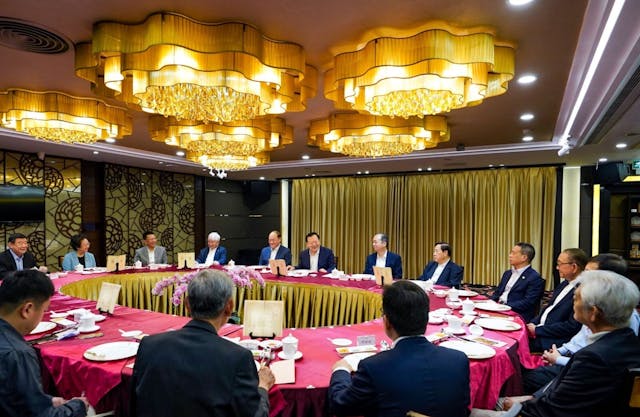
因此,夏寶龍與商界人士及葡語商界精英的會面意義重大──經濟合作區以廣東、珠海為主導,大力動員更多澳門人在區內居住、工作、學習,加上未來幾年葡萄牙和一些外國投資的綜合吸引力。如果合作區是象徵結合了澳門和內地經濟和法律特點的新綜合體,那麼它很可能是內地另一個新的特別行政區,正如已故領導人鄧小平所設想的那樣,會有更多華南港澳式經濟飛地。
第三,港澳兩地的分工漸趨明顯,香港以貨幣金融中心為主,澳門側重博彩旅遊,部分經濟多元化,如中醫藥樞紐、創新科技發展和新的會展中心。中央鼓勵香港與深圳,包括前海更緊密地融合,以發展科技和創新產業。夏寶龍這次考察澳科大和澳門大學意義重大,因為雖然澳門大學的全球排名可能不如香港大學,但夏寶龍和習近平主席的信息很明確:澳門的大學一定能夠在國家民族和科學發展中發揮更大、更重要的作用。這些信息對澳門的大學無疑是一種鼓勵,但他們必須在教學和研究方面更加努力,並且遲早都應該在橫琴合作區建立校園和研究基地。
港澳勢加速融入大灣區
第四,如果夏寶龍要寫一份對澳門和香港都有所建議的報告,他的報告似乎有一些突出的相似之處:強調維護國家安全,強調「愛國者治港」和「愛國者治澳」;以改善民生和住房為重點,兩個特別行政區要加快融入大灣區,香港和澳門及大灣區其他城市之間的分工明確。他的報告其中的一項建議,似乎是要求廣東、珠海和深圳加大力度協助澳門和香港分別與橫琴和深圳,在社會經濟和科技方面更緊密地融合。因此,北京在華南地區有明確的區域發展戰略,強調將貫徹「一國兩制」,下一個目標將明確針對台灣,或與福建省和大灣區的社會經濟相融合。
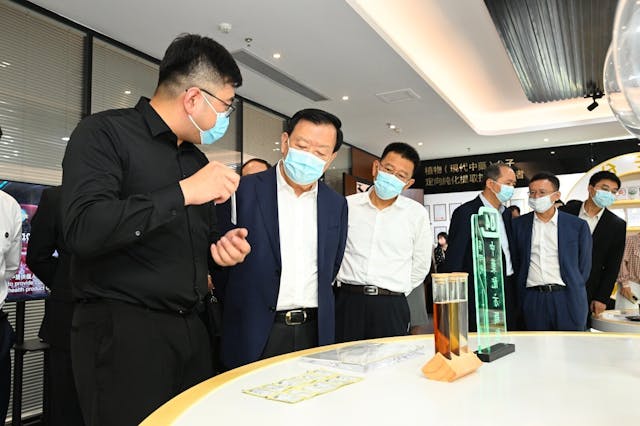
總而言之,夏寶龍此次澳門之行,對澳門、香港乃至大灣區都具有重要意義。如果「一國兩制」仍然是北京對澳門和香港政策的支柱,它無疑會堅持韌性和迅速適應瞬息萬變的環境,包括澳門和香港,都需要更靠攏橫琴與深圳,強調的是維護國家安全、改善民生和公共房屋政策,增强港澳兩個特別行政區的競爭力和兩個資本主義飛地對民族復興的持續貢獻。
Xia Baolong’s visit to Macau: Implications for Macau, Hong Kong and Greater Bay Area
The four-day visit of Xia Baolong, the director of the Hong Kong Macau Affairs Office (HKMAO), to Macau from May 23 to 26 has significant implications for not only Macau but also Hong Kong and the Greater Bay Area.
Xia’s visit to Macau on the first day was marked by his arrival at the Hengqin-Guangdong-Macau Deep Cooperation Zone prior to the entry to the Macau special administrative zone. In the Deep Cooperation Zone, he listened attentively to the developmental plan, visited “the innovative valley” for Macau’s youth and the ongoing projects for Macau’s new residents, and inspected the Chinese medicine and scientific park. He paid a visit to the customs inspection located at the second line of the Cooperation Zone. Furthermore, Xia met the members of the Management Committee of the Cooperation Zone, exchanging views with them.
Then he went to Macau during the afternoon, bringing the message from the Chinese President Xi Jinping’s hope that the Macau government can and will unite all sectors of the society to implement “one country, two systems” resolutely based on the principle of protecting national security. Moreover, Xia added that Macau should strengthen the construction of the “patriotic people governing Macau,” promote the development of “suitable degree of economic diversification,” and that the Macau government should elevate its standards of governance and governing capability. As such, Macau can and should contribute more to the construction of a strong Chinese nation and the Chinese renaissance.
Xia reiterated the need for Macau to implement accurately and resolutely the “one country, two systems.” Regarding the protection of national security, Xia stressed the importance of national education, national security education and the need for Macau to implement the newly revised national security law.
With regard to the “patriotic people governing Macau,” he added that Macau’s governing power must be “firmly grasped” in the hands of those people who “love Macau and the nation,” and that the Macau people should conduct united front work inside and outside China to win the political support for the “one country, two systems.”
Concerning economic diversification, Xia added that Macau must cultivate new industries, improve the business environment, groom, and attract talents, and develop basic research and consolidate scientific innovation to enhance Macau’s competitiveness.
On the question of developing Hengqin, Xia said that Macau and Guangdong must enhance communication, dialogue, and negotiation, and that both must shape Hengqin as a “new platform” for Macau’s suitable degree of economic diversification.
The second day of Xia’s visit to Macau was characterized by his meetings with the principal officials of the Macau government. He affirmed the central government’s recognition of the work of the Macau government, listening to the reports from them and later interacting with all members of the Legislative Assembly. In the afternoon, Xia visited the Macau Tourism Institute and observed its teaching pedagogy of grooming the talents in the tourism industry.
Xia also visited the Macau disciplinary forces and was briefed by the Secretary for Security Wong Sio Chak on the law-and-order situation in Macau. The HKMAO director encouraged the Macau disciplinary forces to put national security protection and the people’s safe residence as a priority and he promised that the central government fully supports and protects Macau’s safety and security.
Accompanied by Chief Executive Ho Iat Seng, Xia met Sam Hou Fai, President of the Court of Final Appeal, and Prosecutor General Ip Son Sang as well as other judicial officials, listening to their work and interacting with them. Xia affirmed the central government’s recognition of the work of the Macau judiciary.
A highlight of Xia’s second-day visit was the revelation of President Xi Jinping’s letter dated May 23, 2023, to the teachers and students at the Macau University of Science and Technology (MUST), a letter that congratulated the MUST’s participation in the research and manufacturing process of a Satellite named “Macau Science Number 1.” Xi’s letter encouraged the Macau scientists to persist with their excellent tradition of loving the nation and loving Macau, and to actively integrate with the national development and to participate in the construction of the Greater Bay Area.
In response to Xi’s encouraging letter, Macau Chief Executive Ho Iat Seng expressed the Macau people’s gratitude to the support from the Chinese President and he pointed to the tremendous opportunities provided by the Chinese nation for Macau’s scientific, innovative, educational and talent development.
The third day of Xia’s visit to Macau was punctuated by his early breakfast at a Chinese restaurant and then his interaction with the elderly residents and volunteers at the elderly services centres, singing songs together and revealing President Xi’s response to the letter from the Macau elderly people. Xi said that the Macau elderly residents should take care of their health and that they should develop their brightness through the continuation of their patriotic spirit. Moreover, President Xi hoped that the Macau government would continue to cooperate with the society on the provision and improvement of elderly services.
Xia visited various sites, including the Macau car-racing museum, and the exhibition centre of the Sino-Portuguese trade cooperation and services. He met the businesspeople and emphasized the need for Macau to develop sustainability and other new industries. Xia listened to how Macau has been developing its non-material cultural heritage projects, local customs, and unique cultural festivals. Those businesspeople who interacted with Xia embraced those from the restaurant and catering industry, the construction sector, the monetary and financial services, and the Portuguese-speaking enterprises and business associations. Xia affirmed the central government’s appreciation to the Macau commercial and business sector’s support of the Macau government in the past three years, and he encouraged its sectoral members to build up the Cooperation Zone in Hengqin and to make extra efforts at Macau’s economic diversification.
Xia also visited the public housing units in Macau, staying in an apartment for the elderly for an hour. He expressed his appreciation to the space of the unit and listened to official explanation of Macau’s public housing policy and development. Obviously, the HKMAO director attached immense importance to Macau’s people’s livelihood and housing development.
The final day of Xia’s visit was characterized by his visit to the MUST and the University of Macau, inspecting four national experimental laboratories. He inspected how the Chinese medicine laboratory was operated at the MUST and listened to the feelings of 18 MUST teachers and students who participated in the national satellite project. Xia visited the University of Macau’s smart city laboratory project.
Xia also inspected two non-gaming leisure projects located at two convention and exhibition centres. He expressed his deep interest in how Macau can and will develop tourists in the areas of non-gaming sectors – a sign that the HKMAO director attached foremost importance to the development of non-gaming sector so that Macau can and will diversify its economy away from its overdependence on casino capitalism.
Xia’s visit has important implications for Macau, Hong Kong, and the Greater Bay Area (GBA).
First, he pointed out explicitly that Macau’s economic diversification is necessary without any choice – a remark echoing the wishes of President Xi. To the central government and its leaders, Macau’s overdependence on casino capitalism is ideologically unacceptable, although they have not made it explicit. The fact that a number of Macau casino capitalists were “punished” in Macau and the mainland due to their violation of the mainland and Macau laws before the Macau government’s decision of granting the casino concessionaries last year was a clear indication of Beijing’s firm position. Casino capitalism in Macau can and will continue, but it will have to be healthy and regulated properly in accordance with the law, especially the protection of national security in the mainland and Macau. From now on, Macau’s casino capitalists must be sensitive to the central leadership’s expectations.
Second, Xia’s visit to the Cooperation Zone prior to his arrival at Macau was significant, meaning that the central leadership paid special attention on how Guangdong and Zhuhai assist Macau to diversify the region’s economy. The term “suitable” diversification means that so long as the Cooperation Zone will witness the movement from some Macau residents to work and live there, and some degree of foreign investment, it will be regarded as an indicator of success of Macau’s economic diversification.
As such, Xia’s meeting with the businesspeople and the Portuguese business elites was important – the Cooperation Zone is led by mainly Guangdong and Zhuhai with the forceful mobilization of more Macau people to reside, work and study there and with the combined attraction of Portuguese and some foreign investment in the coming years. If the Cooperation Zone is a symbol of a new hybrid combining the economic-legal features of Macau and the mainland, it will likely be another new special administrative region in the mainland along the vision of the late Chinese leader Deng Xiaoping that there would be more Hong Kong-style and Macau-style economic enclaves in South China.
Third, there is a looming division of labour between Hong Kong and Macau, with Hong Kong focusing on its monetary and financial centre and Macau attaching importance to partially gaming tourism and partially economically diversified sectors, such as Chinese medicine hub, innovative technology development and new convention and exhibition centre. Hong Kong has been encouraged to integrate closer with Shenzhen, including Qianhai, to develop its technological and innovative sectors. Xia’s visit to the MUST and University of Macau were important this time, because although the global ranking of Macau’s universities might not be so high as compared with its Hong Kong counterparts, Xia’s and President Xi’s messages were clear – Macau’s universities can and will play a greater and an important role in China’s national and scientific development. Such messages are a boost to Macau’s universities, which must work harder in their teaching and research, and which should grasp the physical space of the Cooperation Zone to set up their campuses and research sites there sooner or later.
Fourth, if Xia Baolong is going to write up a report with recommendations on both Macau and Hong Kong, his reports appear to show some prominent similarities: the emphasis on the protection of national security, the stress on the patriotic elites governing Hong Kong and Macau, the focus on the improvement of the people’s livelihood and housing, the accelerated integration of the two special administrative regions into the GBA, and the clear division of labour between Hong Kong and Macau as well as other cities in the GBA. A recommendation in his report appears to ask Guangdong, Zhuhai and Shenzhen to make more efforts at assisting Macau’s and Hong Kong’s closer socio-economic and scientific-technological integration with Hengqin and Shenzhen respectively. As such, Beijing has a clear regional developmental strategy in the Southern Chinese region, implying that the “one country, two systems” will persist with the next target clearly directed at Taiwan’s possible socio-economic integration with the Fujian province and the GBA too.
In conclusion, Xia Baolong’s visit to Macau has important implications for Macau, Hong Kong, and the Greater Bay Area. If “one country, two systems” remains the pillar of Beijing’s policy toward Macau and Hong Kong, it will undoubtedly persist with resilience and swift adaptation to the rapidly changing circumstances, including the need for both Macau and Hong Kong to integrate closer to Hengqin and Shenzhen respectively, the emphasis on the protection of national security, the improvement of the people’s livelihood and public housing policy, and enhancement of the competitiveness of the two special administrative regions, and the continuous contributions of the two capitalist enclaves to China’s renaissance.



